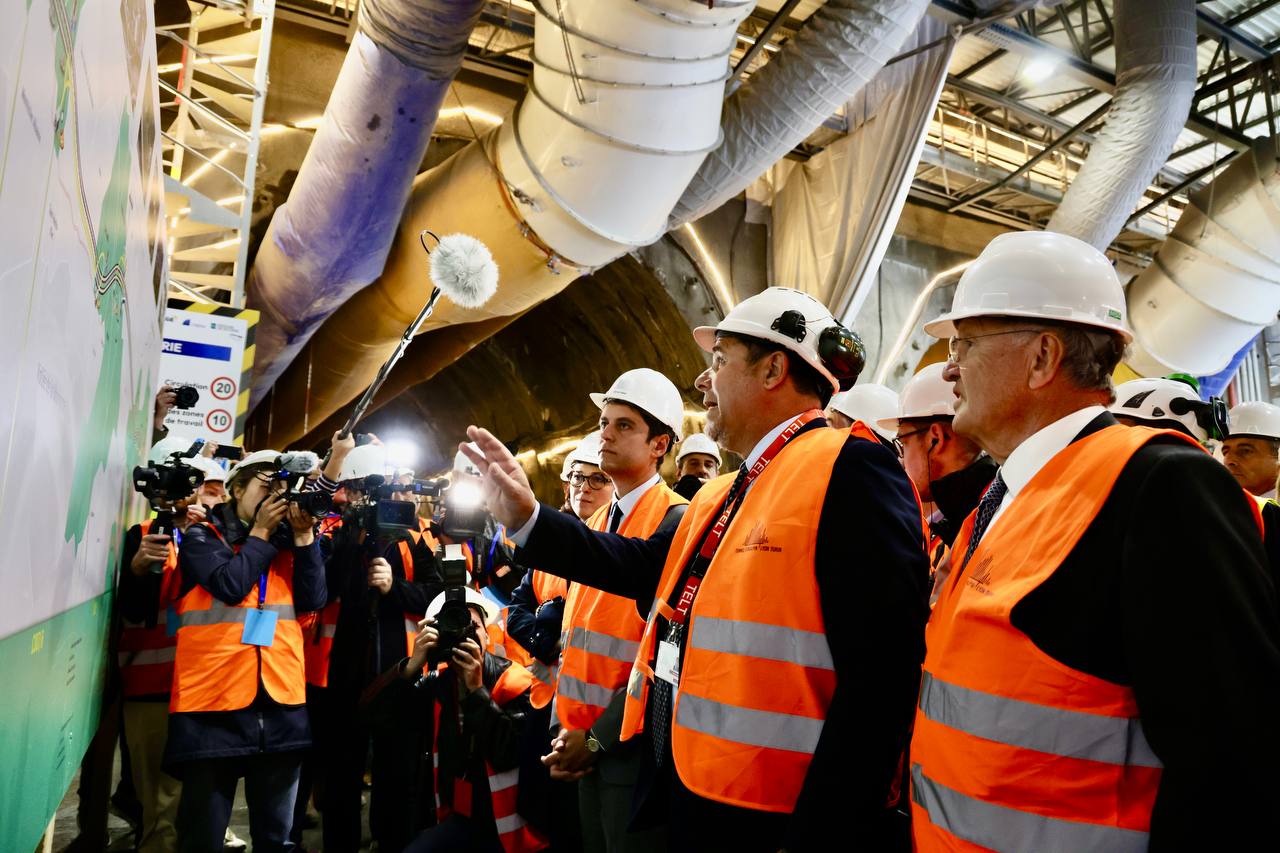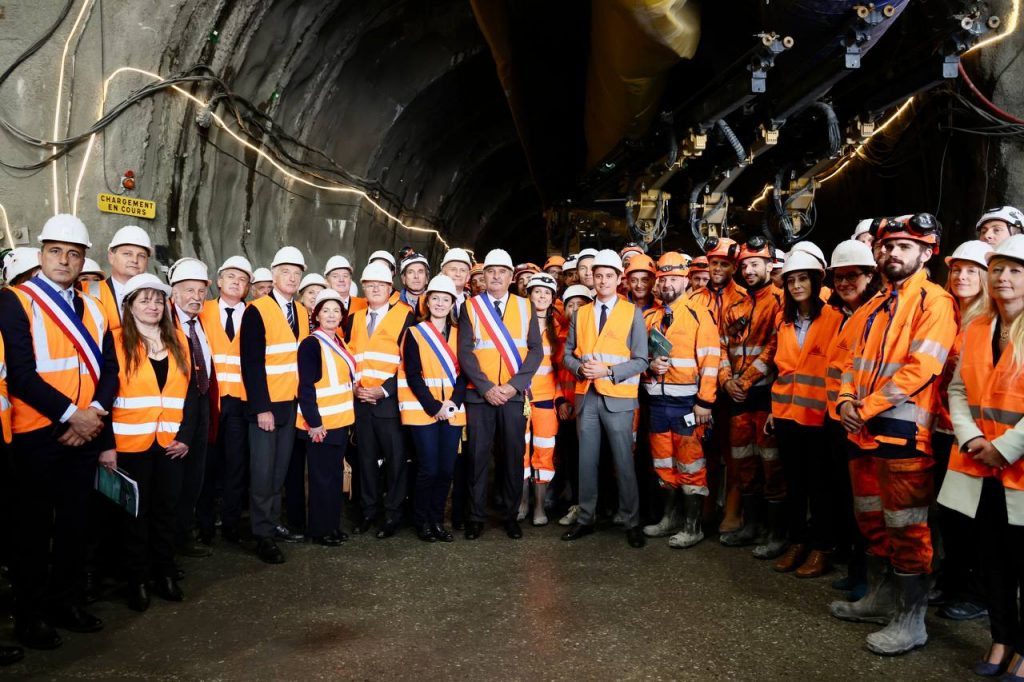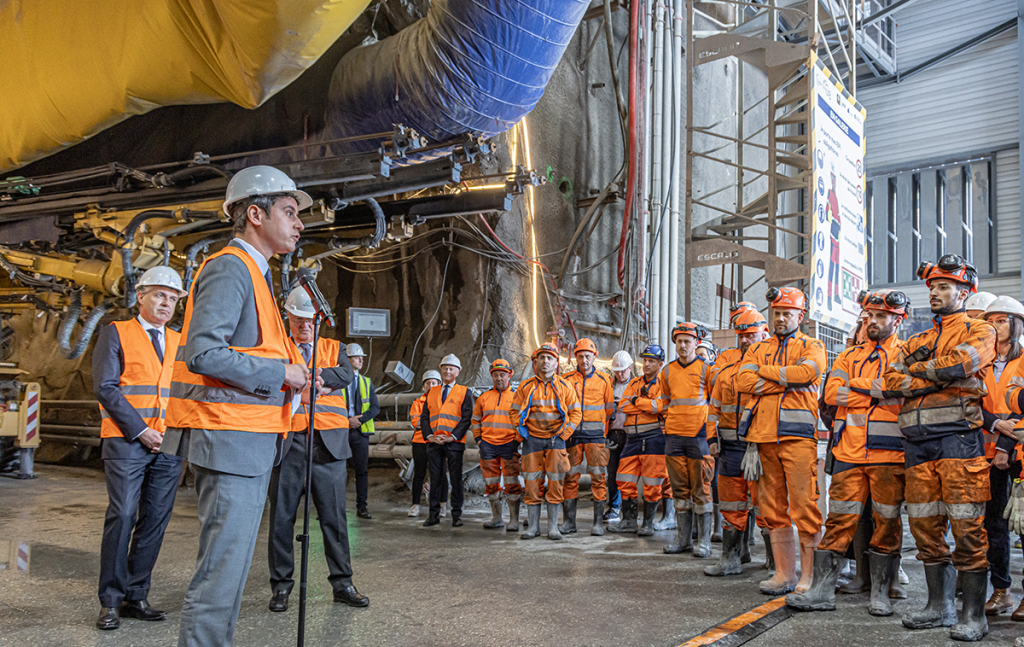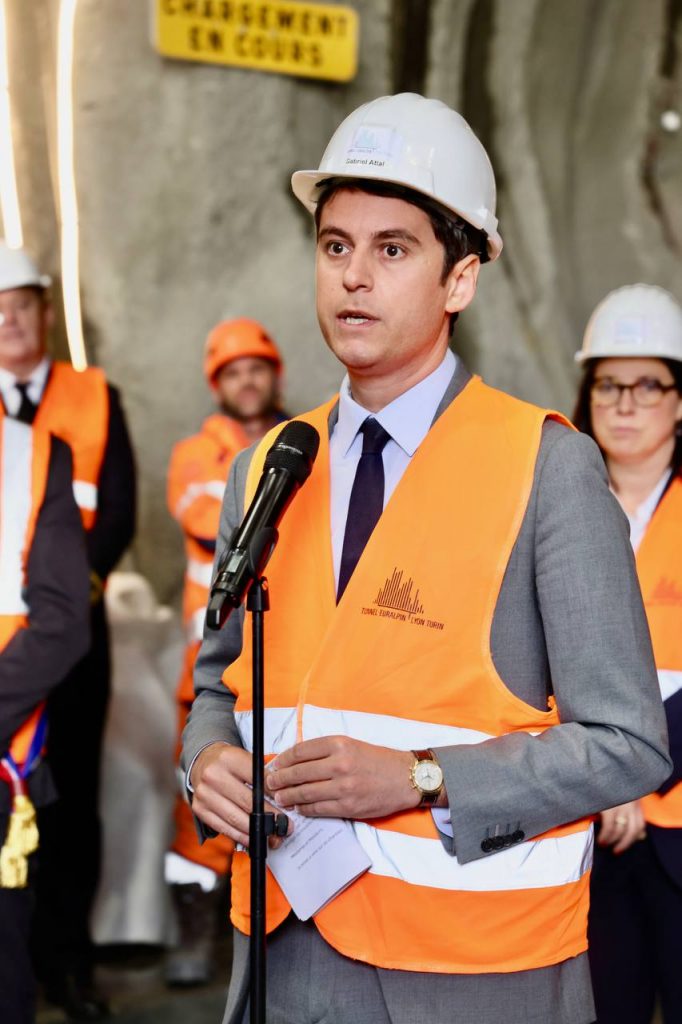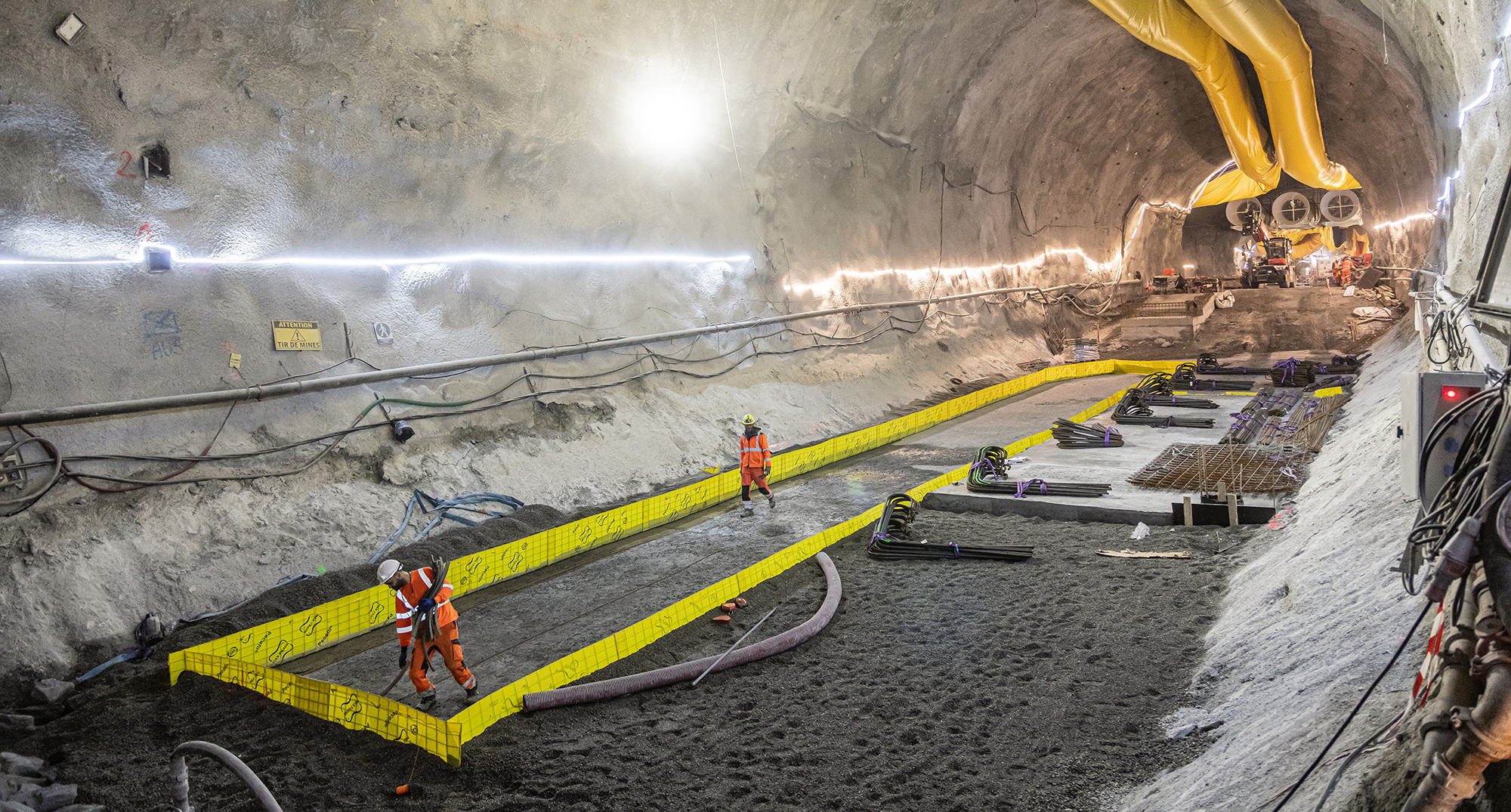The Lyon-Turin line ‘means ecology in action’, a ‘big project that provides a concrete, clear and tangible answer to questions of society’s concern’, starting with the ‘compatibility between ecological transition and economic development’. These were the remarks of French Prime Minister, Gabriel Attal, who visited the CO8 construction site of the Lyon-Turin base tunnel in Saint-Julien-Montdenis on Tuesday 14 May, together with French Minister for Ecological Transition, Christophe Béchu, and French State Secretary to the Minister for the Economy, Finance and Industrial and Digital Sovereignty, with responsibility for the Digital Sector, Marina Ferrari, confirming the State’s support for this major European project.
The visit
More than two hundred people, including numerous local, departmental and regional authorities and representatives, workers of the Lyon-Turin 08 construction site group of companies and TELT representatives, welcomed the delegation to the construction site. In front of the entrance to the two tunnels of the base tunnel, TELT’s General Director, Maurizio Bufalini, explained the project and the progress of the work to the prime minister, before accompanying the delegation to the front to see the progress of the work in person.
The prime minister stopped to talk to and greet the workers:
‘There are not small workers’ said Attal, ‘but only great craftsmen at the service of a wonderful project that will change the look of this territory and of Europe’.
It was recalled from several sides that today 92% of freight between Italy and France today travels by lorries and only 8% by rail: ‘The aim of the project’, explained TELT President, Daniel Bursaux, during his speech, ‘is to increase this percentage to 50%, thanks to the new tunnel at plain level, which is much more modern and user-friendly for operators. This will mean that every year about 1 million heavy vehicles will no longer travel by road’.
The President then emphasised that all contracts for the excavation of the tunnel have now been awarded, along with those for the reuse of excavated materials, and that at full capacity ‘There will be 7 tunnel boring machines in action, each digging 250 metres per month, and 4,000 people working in our construction sites’.
The visit ended with an invitation to ‘come back to visit us when the TBMs will be operational’.

